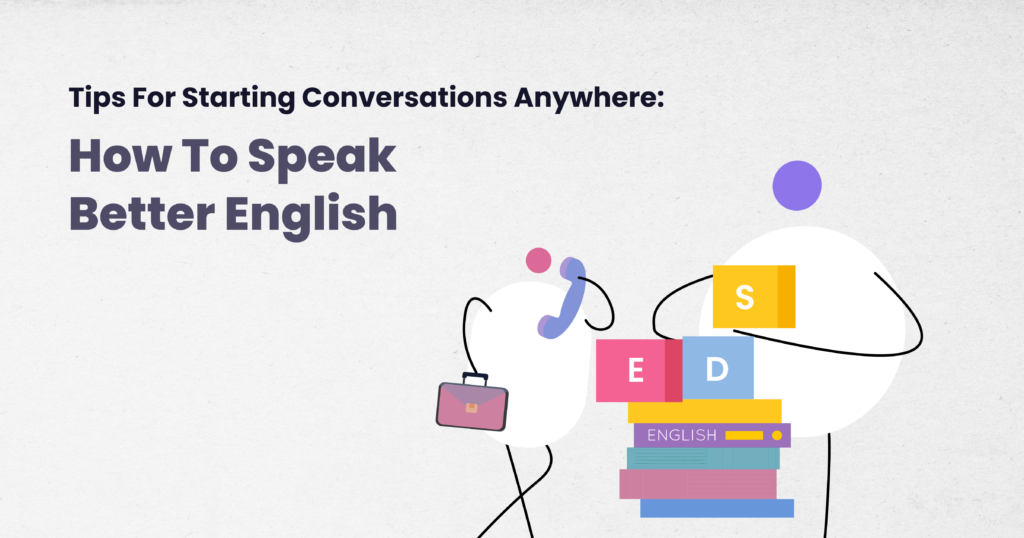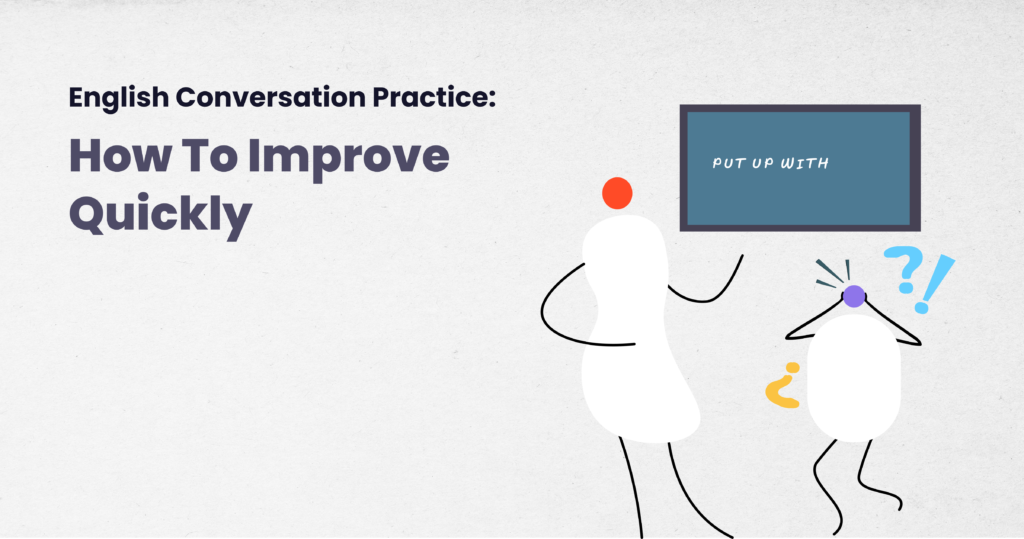Starting a conversation can be challenging, especially in new or unfamiliar settings. With a few simple strategies, you can make conversations flow naturally, whether you’re at a social gathering, networking event, or just a casual meetup. These practical tips will help you connect with others and feel confident in any setting as you practice your English skills. Here’s how to strike up conversations comfortably and naturally.
1. Smile and Make Eye Contact
First impressions are key, and a warm smile paired with eye contact sets a positive tone for any conversation. Smiling puts people at ease, making them more likely to open up. Eye contact shows attentiveness and signals that you’re ready to engage. This combination makes you appear approachable and invites others to start a conversation if they’re feeling hesitant.
2. Ask Open-Ended Questions
Starting with open-ended questions—those that don’t have a simple “yes” or “no” answer—leads to more engaging interactions. For instance, instead of asking, “Did you enjoy the event?” try “What’s been your favorite part of the event so far?” Open-ended questions encourage people to share more, giving you a chance to respond thoughtfully and keep the conversation flowing naturally.
3. Comment on the Environment
Observing your surroundings can offer easy conversation starters. If you’re at a party, you might comment on the music, decorations, or the food. In a professional setting like a conference, you could mention a recent presentation or a notable speaker. These observations are easy entry points, giving you chances to engage without needing specific knowledge.
4. Share Something About Yourself
Sharing a small personal detail helps others feel comfortable opening up. For instance, at a networking event, you could say, “I’m really interested in learning more about this field and am excited to meet people who can share insights.” This approach not only provides context about why you’re there but also opens the door for others to share about themselves.
5. Show Genuine Interest
People love talking about their experiences, and showing genuine interest in someone is an easy way to keep the conversation going. You can do this by asking about their opinions or experiences, and by actively listening to their responses. Nodding, giving verbal affirmations like “I see” or “That’s interesting,” and asking follow-up questions makes others feel valued and heard.
6. Use Compliments to Break the Ice
Compliments make people feel good, and they can be great conversation starters. A well-placed compliment on something like their outfit, a unique accessory, or even their thoughts on a topic can set a positive tone. Just be sincere; people can tell when a compliment isn’t genuine. For instance, “I love your necklace; it’s so unique!” can lead to a conversation about fashion or where they found it.
7. Find Common Ground
Look for shared interests to create an instant connection. If you discover a common hobby, favorite book, or recent experience, it can make an ideal topic. Phrases like “I noticed you mentioned [shared interest], I love that too!” or “Have you tried [related activity]?” create a bond and make people feel at ease.
8. Be Mindful of Body Language
Body language says a lot before you even speak. Standing or sitting up straight, facing the person, and avoiding crossed arms can make you appear approachable. Positive body language reinforces your words and helps the conversation flow smoothly.
9. Know When to Wrap It Up
Not every conversation will last forever, and that’s okay. Knowing how to exit gracefully is just as important as starting a conversation. You could say, “It’s been great talking with you! I’m going to grab another drink, but let’s catch up later.” A polite exit keeps the door open for future conversations.
10. Practice Makes Perfect
The more you practice, the easier it becomes to start conversations naturally. Practicing often will improve your conversation skills, helping you learn how to speak better English through real-life interactions.
Starting a conversation doesn’t have to be intimidating. With these tips, you’ll feel more confident connecting with others, and over time, your skills will improve. When you focus on genuine engagement and active listening, each conversation can help you make meaningful connections and learn how to speak better English.


